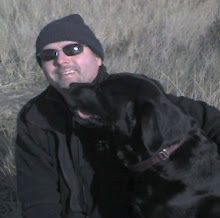History
Driving past another movie poster, where one day I had hoped to see my own name (and I have, which is nice) and then realizing that I no longer want to be sold Mass Media. I want to discover what I like and what's cool, as much as I can, for myself - by listening to other conversations of *people* - real people, not not marketing departments and focus groups.
We are truly in a new world with the Internet destroying any concept of scarcity of distribution that for so long limited what we as the "audience" at large had access to. I still hold some faith that there are ways to make successful livings in the making and distribution of creative content - and perhaps that's just the hope that I can't let go of. The small voice that hopes that the dreams of "making it" in the entertainment business haven't died completely with the massive changes in our world.
At the personal level (which really is the level that really counts, right), I'm excited and encouraged and very happy that there IS a place for every voice - that today, really, *anyone* can make a movie - and as storytelling evolves back towards the form it had before the last 100 years of Hollywood - more and more people will learn to tell stories with the mediums accessible to them that weren't there for our generations.
And that brings me back to my own history - to remembering where I came from into this world of creativity and excitement, and embracing what it is that makes the Internet truly remarkable. The web is sociologically transformative. It changed my life as early as 1993 - with my first computer and soon thereafter, my first personal website.
I even have an archive copy of it that maybe I'll post a (WAY OLD SCHOOL) link to up here. I was a GeoCities "citizen" back in the day, in the Arts section that was then called "SoHo". In '93 and '94, I had a *blazing fast* 33.6kb/s dial up modem.
And I wrote poetry - lots of BAD poetry for the site, and even went as far as hosting "global" poetry chats twice weekly for people to log in and post their poetry with others.
I think I have the "Uh-Oh" sound of ICQ chat permanently burned into my brain. Sometimes the groups actually discussed the writing, but usually the pre and post poem posting responses were just segues to the next post, but then that's reflective of most human conversation in general. The chat by and large was just a place for people to connect with other people. Over time, I even flew to places and met some of those people IRL (in real life for you folks who have the web 2.0 lingo and the 1.0 langauge fades into obscurity), some are even still friends to this day.
But you know, it was real. It is was one of the passionate expressions that originally led me to my business and made me somewhat of the bittersweet guy I am today. Looking back at the poems, they sucked hard. But then, they were genuine attempts to find my own voice, my own way of saying and seeing things.... and these became and still are becoming the bits and pieces that inform my own creative choices both in life and in the things I choose to write about.
Who knows, maybe one day I'll write a really [bad] poem again... and I have to admit that brings a rather large smile to my face, and it's an authentic smile;)


